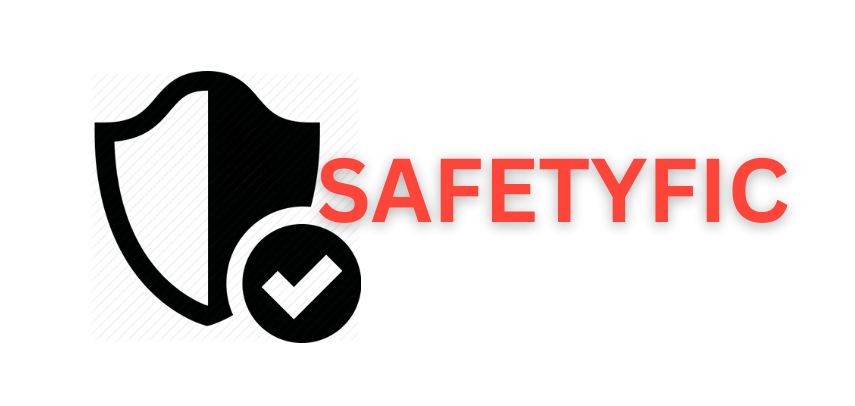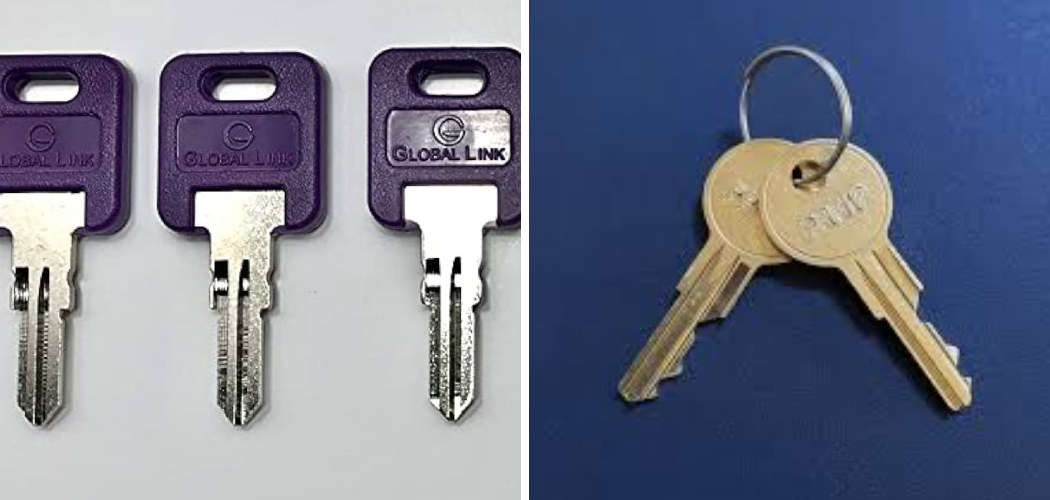Having functional keys for your camper ensures security and ease of access during your travels. Losing camper keys can lead to significant inconvenience, disrupting your plans and potentially stranding you without the ability to access your belongings or continue your journey. Various scenarios might necessitate the need for replacement keys, including accidental loss during outdoor activities,
theft, or even damage due to wear and tear over time. Understanding how to get replacement camper keys is crucial for any camper owner faced with such predicaments. Fortunately, several options are available to address this issue, providing reassurance and solutions to regain access to your camper efficiently. This document will explore these options in detail, offering guidance on the best course of action in different situations, ensuring your camping experience remains smooth and enjoyable.
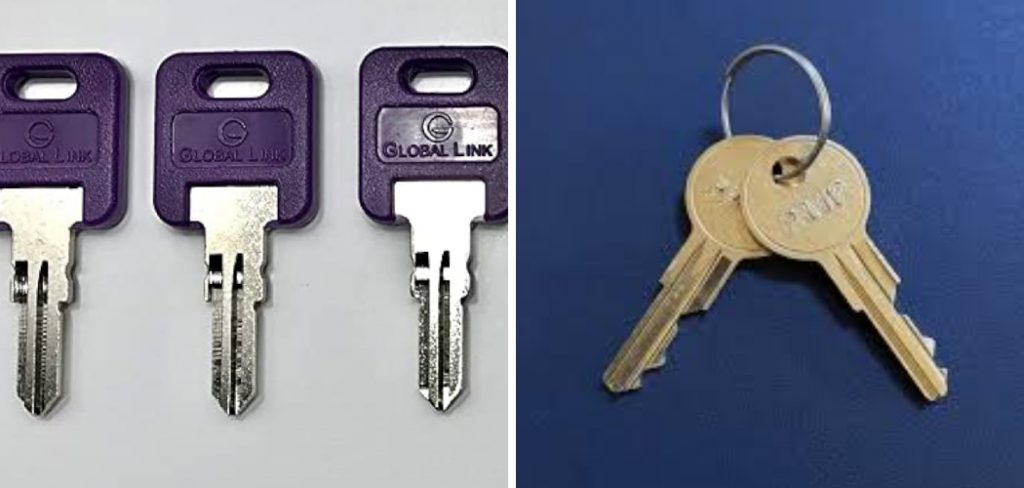
Understanding Your Camper’s Locking System
Types of Locks Used in Campers
Camper security depends heavily on the type of locks installed. Traditional key locks are commonly used, operating with a standard metal key to secure doors and storage compartments. These locks are straightforward but can be vulnerable if keys are lost or duplicated without authorization. Deadbolts offer an additional layer of security, providing a more resistant barrier against forced entry
due to their solid metal bolt mechanism that extends into the door frame. On modern campers, electronic locks are increasingly popular, using key fobs or keypad access. These locks provide convenience and enhanced security features, such as remote locking and unlocking. However, they can be susceptible to electronic failure or hacking attempts.
Key Variants
Campers may utilize various key types, impacting how replacements are sought. Standard metal keys are prevalent due to their simplicity. High-security keys, which often have unique patterns or grooves, offer greater protection but require specialized duplication processes. Additionally, electronic locks may use key fobs, which transmit a radio signal to unlock the doors. Knowing which type of key your
camper uses is vital before seeking replacements, as it dictates whether you need a locksmith, a dealership visit, or a simple trip to a hardware store.
Identification of Lock and Key Information
Understanding your camper’s specific lock and key details is crucial. Most key and lock sets have identification numbers either inscribed on the key itself or inside the lock mechanism. Keeping a record of this information facilitates the replacement process, ensuring you can quickly and accurately order duplicates when necessary. It’s advisable to maintain a detailed list including this data, stored separately from your keys, to aid in swift retrieval should replacements arise.
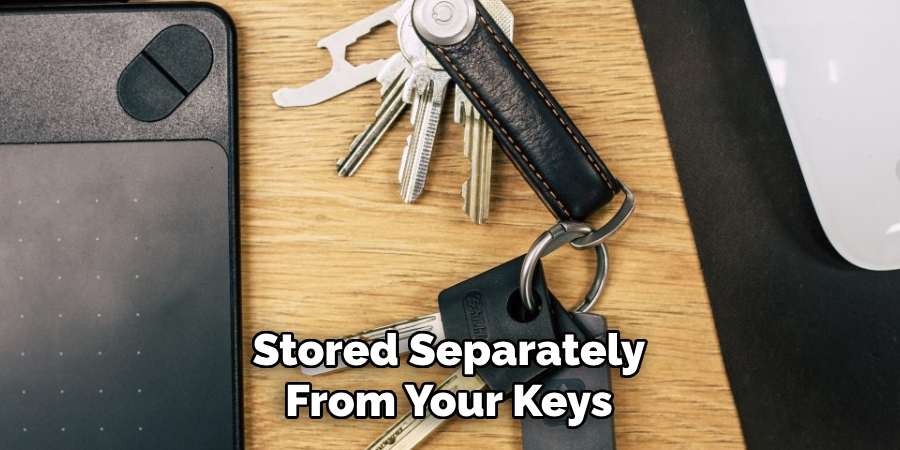
How to Get Replacement Camper Keys: Retrieving Replacement Keys from the Manufacturer
Contacting the Manufacturer
When you need to retrieve replacement keys directly from the manufacturer, the first step is to locate their contact information. This is often accessible on the manufacturer’s official website or in the user manual that came with your camper. Before making contact, gather all necessary details, such as the camper model, year, and Vehicle Identification Number (VIN). Having this information at hand
during the initial communication is crucial, as it helps streamline the process and assists the manufacturer in identifying your camper’s specific locking system accurately.
Providing Required Information
Manufacturers typically require certain pieces of information to process your request for replacement keys. This may include:
- Camper Model and Year: Specifics about your camper help verify the right key variant.
- Lock and Key Information: If possible, provide key numbers or identification codes found on your existing keys or locks.
- Proof of Ownership: This is usually a copy of the registration, purchase receipt, or other form of ownership verification.
Clear and concise communication with the manufacturer can expedite the process. Ensure you articulate all necessary information precisely, reducing the chance of delays or errors in processing your request.
Costs and Delivery Time
Ordering replacement keys from a manufacturer can entail various costs, ranging from $10 to $50 or even more, based on the camper’s make and model and the specific type of key required. Additionally, consider the potential shipping and handling fees. Delivery times for receiving new keys typically vary; however, you can generally expect to wait from a few days to a couple of weeks. The timeframe
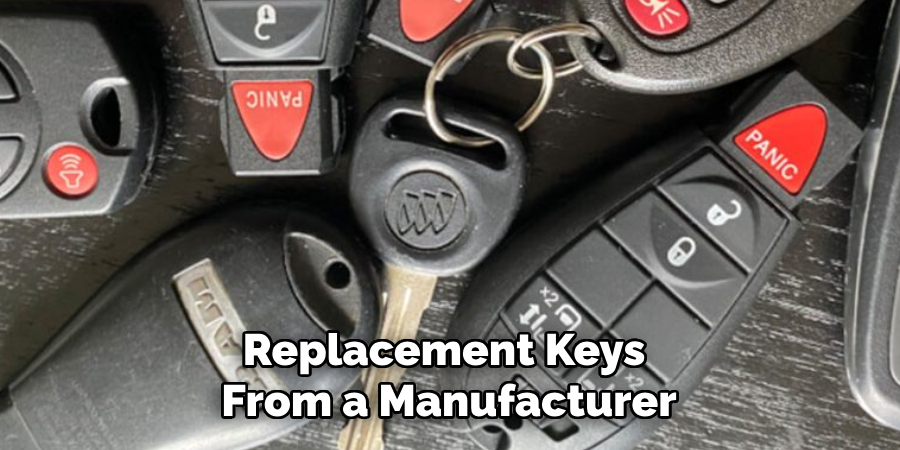
largely depends on the manufacturer’s processing speed and shipping logistics. Being prepared for these variables can help you plan accordingly, ensuring minimal disruption to your camping travels.
Getting Replacement Keys from a Locksmith
When to Consider a Locksmith
Enlisting the services of a locksmith can be a viable option when manufacturer support is unavailable or delayed. This option is particularly beneficial if you require immediate access to your camper and cannot afford lengthy waiting times. Locksmiths can offer faster service and are typically more locally accessible than manufacturers. They provide an efficient alternative for obtaining replacement keys, especially when you’re away from home and in urgent need.
Choosing a Qualified Locksmith
Finding a reputable locksmith requires careful consideration. Start by checking online reviews and asking for recommendations from fellow campers or local communities. It’s essential to verify that the locksmith is licensed and insured to ensure professional and reliable service. Additionally, confirm that they have experience with camper locks specifically, as these can differ significantly from standard residential or automotive locks.
Costs and Services Offered
The cost of using locksmith services for key replacement typically ranges from $50 to $150, depending on the complexity of the lock system and the locksmith’s pricing structure. Beyond simply replacing keys, locksmiths may offer additional services, such as rekeying existing locks to work with a new set of keys or installing new locking systems entirely if replacement keys cannot be obtained. Reputable
locksmiths ensure that their services are flexible and tailored to meet your specific needs, offering solutions that enhance your camper’s security and the convenience of access.
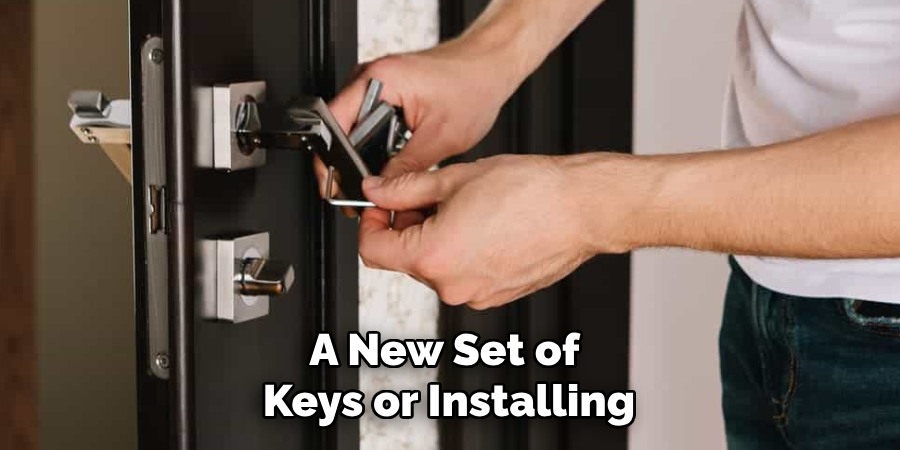
DIY Key Duplication and Replacement Options
Using a Key Duplicator
For those looking to duplicate keys themselves, many hardware stores offer key duplication kiosks that can efficiently create replacements. These machines are user-friendly and ideal if you have an existing key to replicate. To begin, locate a kiosk and ensure that your original key is clean and free of damage. Insert the original key into the slot as instructed, and follow the on-screen guidance to
ensure the duplicator produces an accurate copy. It’s crucial to compare the duplicated key with the original to confirm their match in shape and size, thus ensuring reliable functionality with your camper’s lock.
Key Blank Options
Purchasing a key blank is a cost-effective solution for DIY key duplication. Hardware stores stock a variety of key blanks designed to fit specific lock models. To identify the correct blank for your camper, examine the existing key for any identification marks, such as codes or unique patterns, and consult store staff with expertise in key duplication. You can also reference the camper’s manual or check with the manufacturer for specific key codes. Selecting the correct blank is essential, as an incorrect option could result in an unusable duplicate.
Using Online Services
Online key replacement services present an alternative option for creating replacement keys from key codes. To use these services, you must accurately provide the key codes found on your existing key or camper’s lock mechanism. While convenient, ordering keys online has potential risks, such as receiving a key that may not work due to compatibility issues. Furthermore, there are security
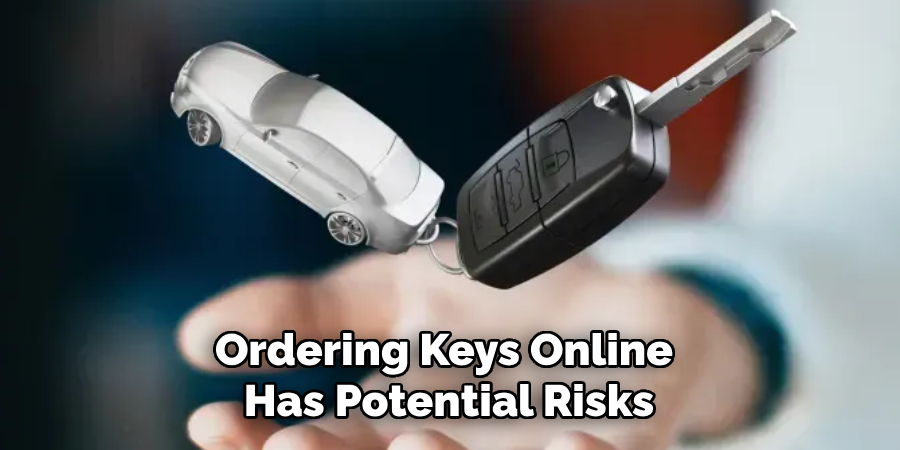
concerns with transmitting key information over the internet. Using reputable services with positive reviews and secure ordering processes is advisable. Understanding these risks helps you make informed decisions, ensuring your camper’s access remains safe and reliable.
Preventing Future Key Losses
Creating Spare Keys
Having spare keys made is a vital precaution that can save you considerable stress and expense in the event of key loss. It’s advisable to have at least one or two spare keys created as soon as possible. Store these spares securely, perhaps with a trusted friend, family member, or in a secure lockbox placed in a discreet location. Avoid leaving spare keys in obvious spots around the camper, as this could invite security risks.
Utilizing Key Tracking Devices
Key tracking devices like Tile or Apple AirTag offer a modern solution for locating misplaced keys. These compact devices can be easily attached to your keyring and work by connecting to a smartphone app. Set up involves pairing the tracker with your phone through Bluetooth and following the app instructions. Once activated, these devices allow you to quickly locate your keys by ringing the tracker from your phone or viewing their last known location on a map.
Establishing a Key Management System
Implementing a key management system is essential for staying organized and reducing the likelihood of losing keys. Label your keys clearly and keep them together in a designated area within your camper or home. Placing your keys in the same spot can significantly decrease the chances of misplacing them. Regularly checking your key inventory, especially before embarking on trips,
ensures you always have your necessary keys. By integrating these practices into your routine, you’ll enhance both your preparedness and peace of mind.

Conclusion
In summary, learning how to get replacement camper keys involves exploring several options, each offering distinct benefits and considerations. Beginning with contacting manufacturers for direct replacements ensures compatibility, although it may involve longer wait times. Alternatively, hiring a qualified locksmith offers a quicker solution, particularly in urgent scenarios. For those more
hands-on, DIY key duplication using kiosks or online services provides a flexible approach, though it requires careful attention to detail. Understanding your camper’s locking system is crucial to making informed decisions and ensuring security. Preventative measures, such as creating spare keys and utilizing key tracking devices, are essential for avoiding unnecessary stress. By integrating
these strategies, including maintaining a key management system, you secure a smoother, hassle-free camping experience, free from concerns about misplaced or inaccessible keys. Proactive planning effectively safeguards against potential setbacks, ensuring you can focus on enjoying your travels.
